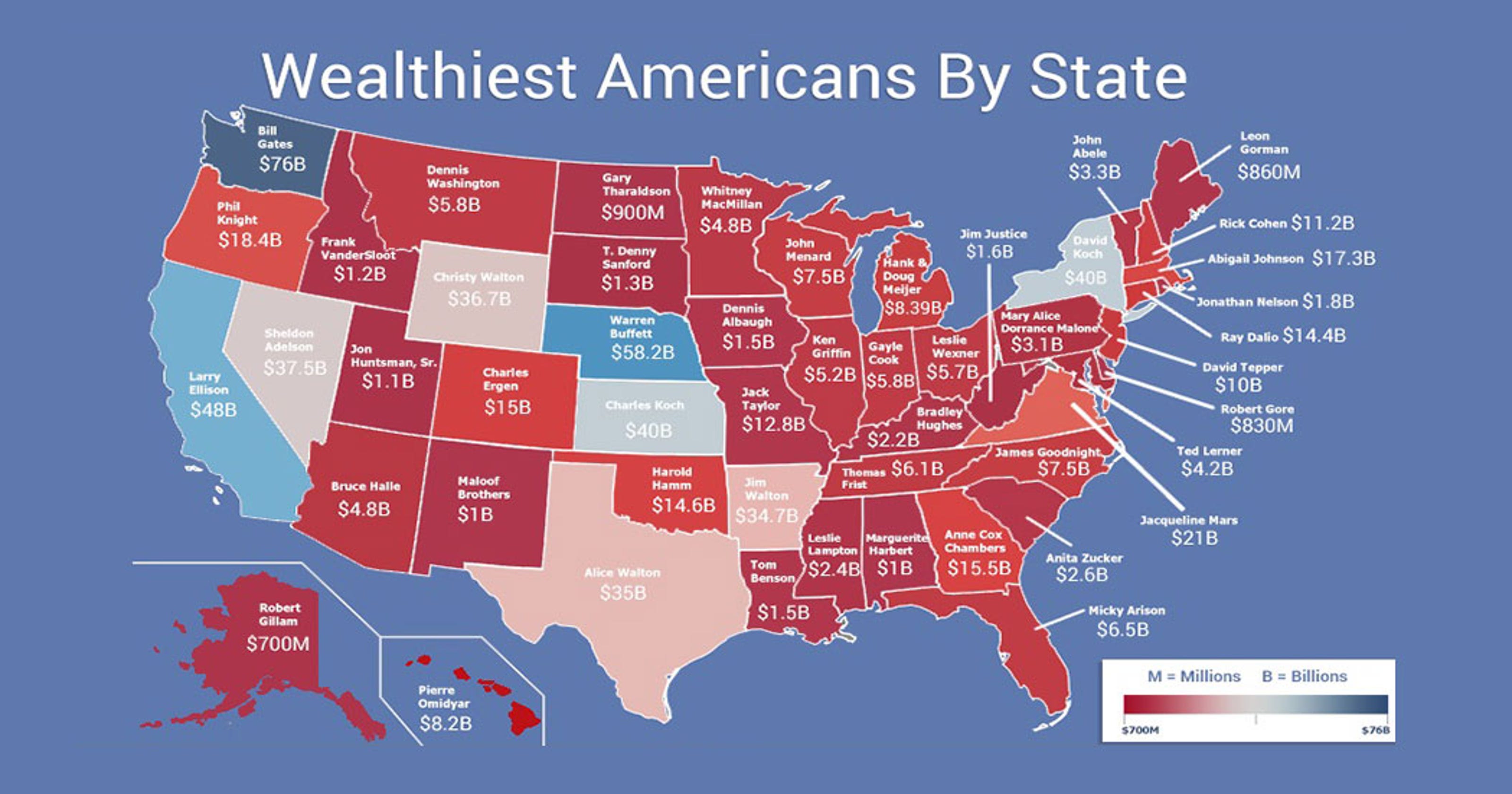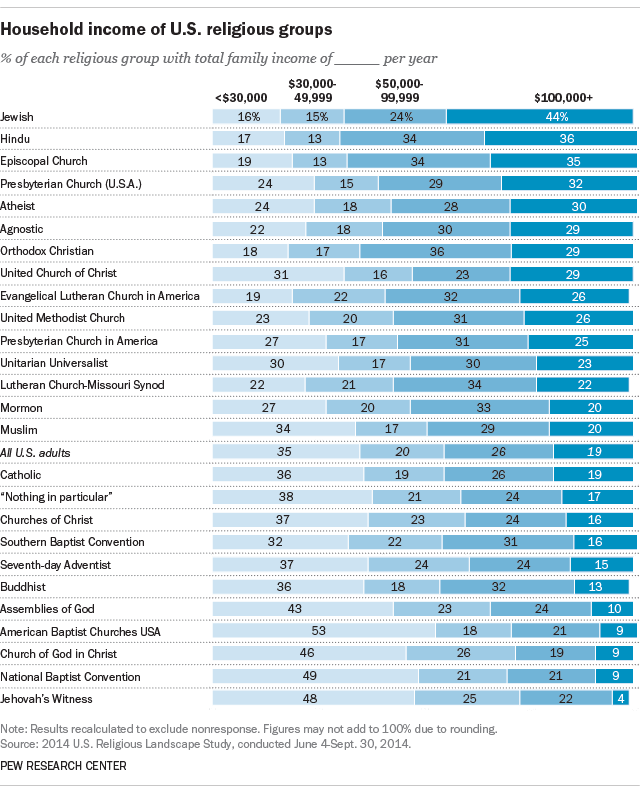Exploring Wealth: What Is The Richest Religion?
Religion has always played a significant role in shaping cultures, societies, and economies around the world. As followers practice their beliefs, they often contribute to their religious institutions, leading to varying degrees of wealth accumulation. This leads us to ponder an intriguing question: what is the richest religion? This exploration delves into the financial aspects of major world religions, examining their assets, contributions, and economic influence.
Understanding the wealth of a religion goes beyond mere financial figures; it involves analyzing the historical context, the nature of donations and tithes, and how religious organizations manage their resources. In this article, we will explore various religions and their economic standings, with a focus on their assets, properties, and financial practices. Through this inquiry, we aim to uncover insights into one of the most fascinating intersections of faith and finance.
As we navigate through the landscape of religious wealth, it’s important to recognize that wealth can manifest in multiple forms. From vast land holdings and properties to luxurious places of worship and the ability to fund charitable activities, the richness of a religion is multifaceted. Join us as we embark on this journey to uncover what is the richest religion and what this wealth signifies in the broader context of society.
- Obamas Kalorama
- Is Tyler Childers Still Married
- Jane Leeves Movies And Tv Shows
- Northfield Newspaper
- Galaxy Theatres Luxury
What Factors Contribute to Religious Wealth?
The wealth of a religion can be influenced by several factors. Understanding these can help explain why certain religions may accumulate more wealth than others:
- Historical Land Ownership: Many religions have owned extensive land parcels historically, which contribute to their wealth.
- Membership Size: Larger religions often have more followers, leading to higher donations and financial contributions.
- Wealthy Donors: Some religions attract wealthy benefactors who contribute significant amounts to their institutions.
- Investment Strategies: The management of funds and investments can significantly impact a religion's financial status.
Which Religion is Considered the Wealthiest?
When discussing what is the richest religion, many often point to the Catholic Church. The Catholic Church is estimated to have a wealth that ranges in the hundreds of billions, primarily due to:
- Ownership of vast real estate and properties.
- Investments in various sectors, including education and healthcare.
- Generous donations from its global congregation.
How Does the Catholic Church Manage Its Wealth?
The financial management of the Catholic Church is complex and involves a mix of transparency and discretion. Key elements include:
- Water Department San Angelo Texas
- White Almond Shape Nail Designs
- Gregg Reuben Wedding Alina Habba Husband
- Vitar For
- Columbus Junction
- Vatican Bank: The financial institution manages the assets of the Holy See and various Catholic entities.
- Investment Portfolios: The Church invests in a variety of industries, including real estate and stocks.
- Charitable Contributions: A significant portion of the wealth is directed toward charitable causes globally.
What About Other Religions?
While the Catholic Church is often cited as the richest, other religions also have substantial wealth. For instance:
- Islam: Wealth among Islamic organizations can be considerable, especially with the presence of wealthy patrons and donations for mosques and community services.
- Judaism: Jewish organizations often have significant assets due to historical land ownership and strong community support.
- Buddhism: Some Buddhist temples and organizations possess considerable wealth through donations and land ownership.
What is the Role of Tithes and Donations?
Tithes and donations play a crucial role in the financial health of religious organizations. These contributions are a reflection of the faith and commitment of followers. Key points include:
- Tithing Practices: Many religions encourage followers to give a certain percentage of their income, significantly impacting their financial standing.
- Fundraising Events: Various religious organizations hold events to raise funds for specific causes or general operations.
- Online Giving: The rise of technology has led to new avenues for donations, allowing for a broader reach.
Are There Any Controversies Surrounding Religious Wealth?
With great wealth often comes scrutiny. Several controversies have arisen regarding the financial practices of religious organizations:
- Transparency Issues: Some organizations face criticism for a lack of transparency in how funds are utilized.
- Wealth Disparity: The contrast between the wealth of religious organizations and the poverty of some followers can lead to ethical questions.
- Tax Exemptions: Many religious organizations enjoy tax-exempt status, which raises questions about the implications for society.
How Can Wealth be Utilized for Good?
Religious wealth has the potential to create positive change in society. Here are some ways that religious organizations can utilize their wealth for good:
- Charitable Initiatives: Funding educational programs, healthcare services, and poverty alleviation projects.
- Disaster Relief: Providing immediate assistance and long-term recovery efforts in times of crisis.
- Community Development: Investing in local communities to foster growth and support vulnerable populations.
Conclusion: What is the Richest Religion?
As we conclude our exploration of what is the richest religion, it becomes evident that wealth in religion is multifaceted and influenced by various factors. While the Catholic Church is often regarded as the wealthiest, it is essential to consider the financial practices, contributions, and community roles of various religions. Ultimately, the true measure of a religion's wealth may not solely rest on its financial assets but also on its impact on society and the lives of its followers. Through a responsible approach to wealth management, religious organizations can continue to serve their communities and uphold the values they preach.
Article Recommendations
- Michael Jackson Home In Gary Indiana
- What Happens To Will In Stranger Things
- Gregg Reuben Wedding Alina Habba Husband
- What Does Adam Sandler S House Look Like
- Billy Joel Diet



Detail Author:
- Name : Andreane Bergstrom
- Username : terry.isobel
- Email : karley09@kuphal.org
- Birthdate : 2006-08-05
- Address : 5127 McDermott Pine Goldnershire, MT 50632-6244
- Phone : (508) 275-4117
- Company : Champlin-Medhurst
- Job : Machinist
- Bio : Commodi ducimus necessitatibus reprehenderit incidunt saepe. Dolorem ea ratione facilis distinctio ducimus sit et et. Alias quas nemo inventore sunt. Fuga aut non ut non.
Socials
twitter:
- url : https://twitter.com/torphy2016
- username : torphy2016
- bio : Mollitia repellendus cumque doloribus veritatis et et error. Enim similique autem ex debitis. Aut error asperiores recusandae.
- followers : 852
- following : 835
linkedin:
- url : https://linkedin.com/in/edgar.torphy
- username : edgar.torphy
- bio : Fugit ratione molestias qui.
- followers : 3820
- following : 253
instagram:
- url : https://instagram.com/edgar.torphy
- username : edgar.torphy
- bio : Ut qui sint repellat atque modi perspiciatis. Non qui quam molestiae non quaerat sint qui quae.
- followers : 3030
- following : 1185